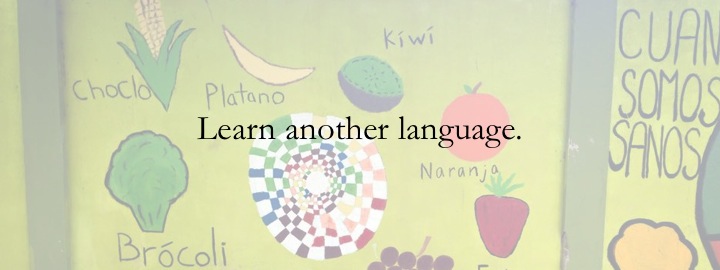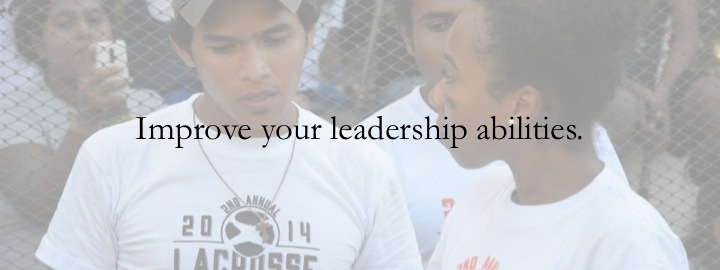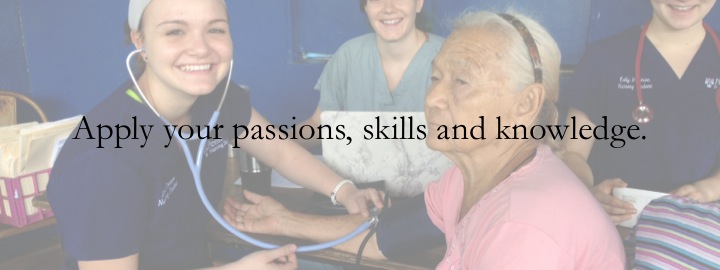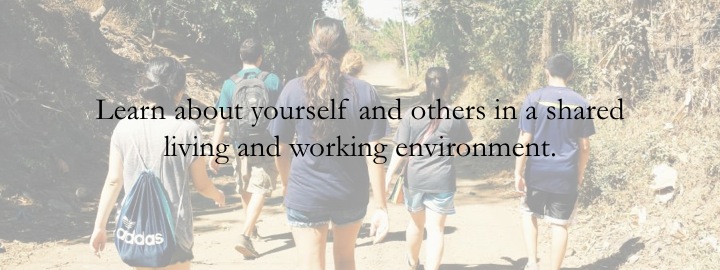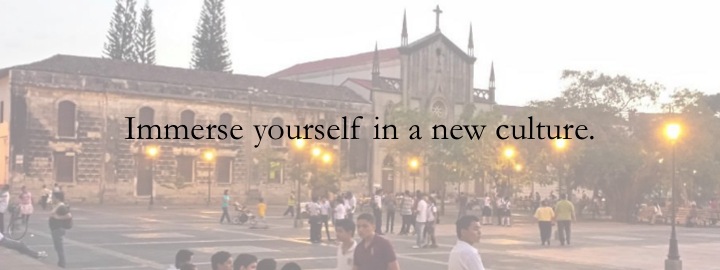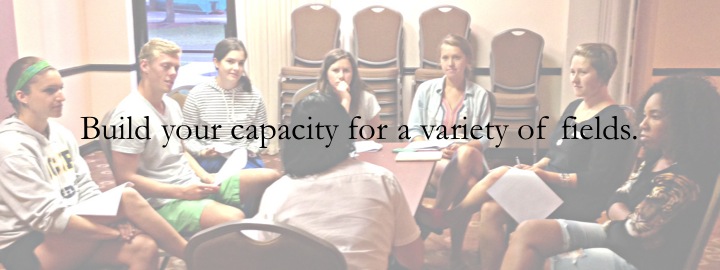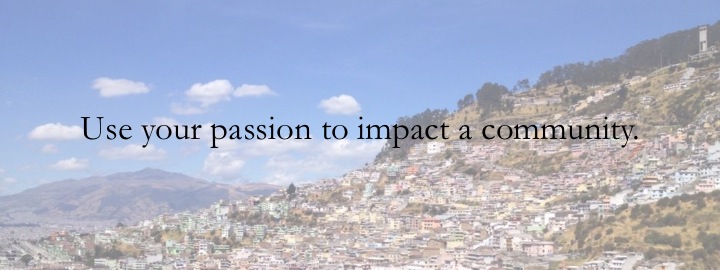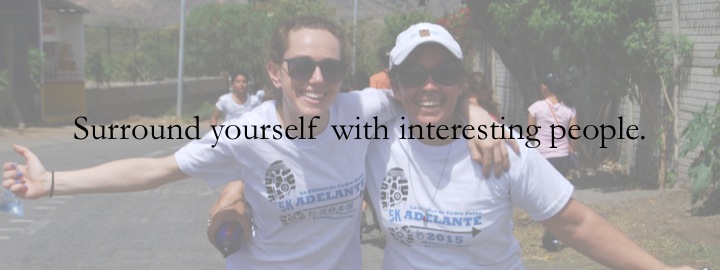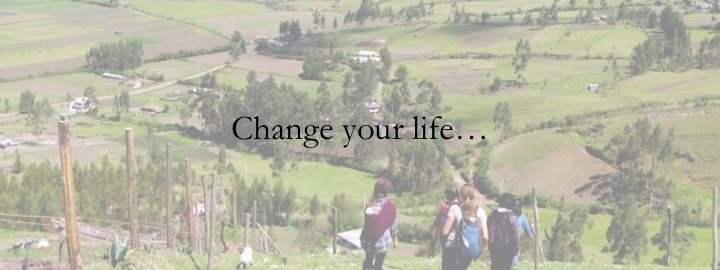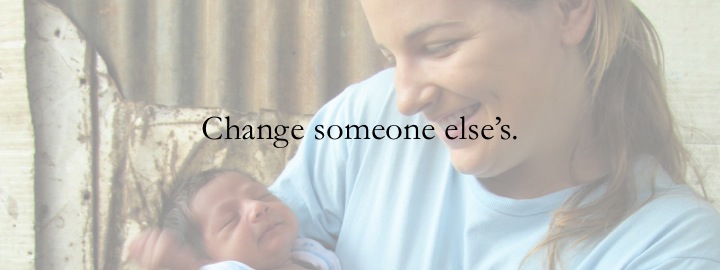Two Turtle Doves
The 12 Gifts of 2016
Merry Christmas and Happy Holidays to you!
Starting today, families across Latin America will celebrate the 12 Days of Christmas. The season will conclude on January 6th, Three Kings’ Day, when children will jump from their beds in search of a special gift.
In honor of this tradition, you are invited to join Manna Project in remembering the 12 most meaningful gifts of 2016. What are these incredible gifts? Hint: you are one of them!
Today we begin a journey through “The Twelve Days of Manna." Each day, you'll find a "gift" posted here. The final gift will be posted the morning of January 6th, just as families are waking up to celebrate Three Kings' Day.
You are the reason 2016 was so amazing - thank you for serving with Manna Project!
Thank you!
Carissa Chen
Nicaragua Program Director, 2015-2016
The first gift of 2016 is...
Summer Internship Applications Due
The next summer intern application deadline is November 18th.
Summer Interns live alongside other young leaders and community members, and are fully integrated into the daily functions of Manna Project’s work on the ground. Weeks are spent collaborating with staff to plan and facilitate programs, while weekends are for exploring. As the days progress, you will develop an understanding of long-term development goals and their implementation.
This unique internship program is designed to create the most impactful experience for you and the communities you’ll serve. Summer Interns are equipped and inspired to continue their work in a variety of career fields, including international development and the greater non-profit sector. Many Summer Interns return to Manna Project as Program Directors in following years.
Summer 2017:
Session 1: May - June, 4 Weeks
Session 2: June - July, 4 Weeks
Both Sessions: May - July, 8 Weeks
Begin your journey here:
Looking for a more in-depth international development experience? MPI's Program Directors spend 5, 7 or 13 months on site.
Sign Up for More Info
“My time spent with Manna Project International has been one of the most rewarding experiences of my life. I developed incredible relationships and made memories that I will cherish forever. Part of me will always be involved.”
Visiting Nicaragua During the Lacrosse the Nations Cup
Getting Involved as a Parent
Ever since her son, Dan Lewis, came to Nicaragua as a Program Director, Dr. Liz Herr has actively supported many of MPI's programs and initiatives. In this blog, she shares some of the ways that she was able to get involved as a parent and help raise awareness about the work her son was doing.
Eleven months ago, we said goodbye to our son Dan at the Denver airport as he headed out for a year as a Manna Project International (MPI) Program Director in Nicaragua. Dan also directs programs with MPI's partner organization Lacrosse the Nations (LtN).
Lacrosse the Nations uses lacrosse in PE and after school programs to teach nutrition, health, self-esteem, life skills and the value of education. Through the LtN Scholars program, students can also receive educational support, coaching opportunities, and university scholarships.
Over the next few months, as we learned more and saw Dan becoming more passionate about MPI and partner organization Lacrosse the Nations (LtN), my husband Fred and I found ourselves wanting to find ways to support the programs. One of the most fun ways we’ve done this has been to lend our support to the annual LtN Cup.
As part of his duties as a Program Director with Lacrosse the Nations, Dan is heavily involved in organizing the LtN Cup. The Cup is a 5 v 5 tournament held annually as a competition and way to share and connect the two LtN programs in Nicaragua - Chiquilistagua and Club Hope. It is also LtN’s biggest fundraiser of the year, supporting LtN programs and providing vital funds for MPI's Cedro Galán Medical Clinic.
Fundraising is done by posting a picture of each player on the LtN website and allowing supporters to pledge funds in one or more player’s name. The goal is to have $100 in pledges for each player by tournament time. Fred and I got into the spirit of the event. We made a pledge ourselves and we also spread the word to friends, relatives, co-workers, neighbors, the sports teams our sons had played on, local lacrosse shops and literally anybody else we could think of. We had planned to take a trip to Nicaragua during Dan’s year there, and we managed to schedule our trip to coincide with the tournament. So, as added incentive, I was able to promise any of my friends who would donate that I would take an action shot of the player they had supported email it to them.
People were very receptive to hearing about the organizations and the tournament. Some donated, some didn’t, but we had fun, and in addition to drumming up sponsors it allowed us to introduce LtN and Manna Project to many of our friends and acquaintances.
Because we felt like we had a tiny part in it, it was fun to anticipate the tournament and to be excited as the coaches and players got closer to their fundraising goal. Actually being able to attend the LtN Cup last November was a wonderful bonus. It was great to meet LtN directors Javier and Norman, all the Manna Project Program Directors, and the coaches who had worked so hard on the tournament. But the highlight was watching the kids play lacrosse. Equipment is a bit scarce and worn, and there aren’t fancy uniforms, but the players were remarkably skilled. We were impressed by their effort, determination, and teamwork. There was laughter, a few tears and to top it off the championship game was exciting until the very end!
There are many ways to support Manna Project:
- You can help meet the needs of one of the critically undernourished children in the Child Sponsorship program.
- Choose your favorite team in the annual Cedro Galan 5k. Women in the community head up the teams and recruit running participants, aiming to promote and celebrate health as well as raising money for the clinic.
- If you are into lacrosse, organize a “Scoop for Loot” or “Mini-Jam."
- See if your company has a matching donations program.
- Select Manna Project as your charity of choice on Amazon Smile.
- Search the internet with GoodSearch.
- Or come up with your own way to support Manna Project, and enjoy!
MPI Nicaragua Country Director Receives Gillings Merit Scholarship
MPI Nicaragua Country Director Christina Palazzo has received the prestigious Gillings Merit Scholarship from the University of North Carolina Gillings School of Global Public Health. The Gillings Scholarship is awarded to select graduate students who show exceptional promise and potential.
“The Gillings Merit Scholarship will allow me to gain up-to-date knowledge I can put into practice immediately in my work in Nicaragua.”
Christina is currently pursuing a distance-based Masters in Public Health at the UNC Gillings School of Global Public Health, the top public school of public health (US News & World Report, 2016). Christina is part of the Public Health Leadership Program, which prepares leaders with skills to assess community health needs and develop new policies and programs to address those needs.
Christina’s research focuses on mosquito-borne illnesses and community-based preventative initiatives in under-resourced countries in Latin America, as well as the socio-economic factors that contribute to mosquito-borne diseases. Her research is particularly relevant due to the maternal and pediatric health effects of the current Zika outbreak. “I am passionate about finding community-based solutions for health issues affecting vulnerable populations in Latin America,” Christina said. “The Gillings Merit Scholarship will allow me to gain up-to-date knowledge I can put into practice immediately in my work in Nicaragua.”
Christina Palazzo, MPI Nicaragua Country Director
This research is highly relevant for MPI’s work in Nicaragua, where mosquito-borne illnesses including Dengue fever, Chikungunya virus, and Zika virus impact tens of thousands of people each year.
Although these illnesses impact individuals from all socioeconomic backgrounds, the burden tends to be highest among poorer communities with limited access to clean water, solid waste infrastructure, and where conditions are most favorable for mosquito breeding. Due to these factors, the communities MPI serves in Nicaragua are at particularly high risk for mosquito-borne illnesses. Christina's research will help us to better equip clinic staff and further educate community members about ways they can protect themselves. Christina will graduate in December 2017.
You can read the Gilling School's announcement here.
Congratulations, Christina!
We are so grateful for your dedication to the health of at-risk communities!
The prevalence of Zika virus has led to a sharp increase in patient numbers at MPI's clinics in Nicaragua. Your donation has an immediate impact for communities in need of health care. Please donate today!
Parent Series: Exploring Nicaraguan Cuisine
After his son, Dan Lewis, came to Nicaragua as a 13-month Program Director, Dr. Fred Lewis and his wife, Dr. Liz Herr, came down to visit - twice! In addition to participating in many of MPI's programs, they also had the chance to travel throughout Nicaragua and experience much of what this beautiful country has to offer. In this blog, Dr. Lewis shares some of his favorite Nicaraguan foods and restaurants. Bon appetit!
Exploring Nicaraguan Food
Nicaraguan food has Spanish, Creole and indigenous influences. It is simple, fresh and, a bit to our surprise, we found it to be fantastic. We enjoyed a number of traditional dishes.
Plantains
Plantains are found just about everywhere in Nicaragua. Dan introduced us to the three different ways plantains can be prepared. Very ripe plantains are sweet and can be sautéed into maduros. Tajadas are “potato chip”-like plantains. You will find them packaged and sold in grocery stores, gas stations and sometimes as street food. My favorite were tostones, especially tostones con queso. Green plantain slices are fried then topped with a slightly salty queso or Nicaraguan cheese.
Gallo Pinto
Gallo pinto is a staple in Nicaragua. Beans and rice are cooked separately then combined, sometimes with onion or garlic. Gallo pinto is hearty, cheap, and really delicious. Just about everyone (including the Manna Project Program Directors) has gallo pinto for, or with, all three meals.
Corn
Corn is also a staple and used for everything from tortillas to a sweet drink called chichi de maiz. Our driver introduced us to quesillos—the very best ones found in a roadside shop in Nagarote—a blend of cheese, cream, picked onion, and vinegar wrapped in a corn tortilla. Traditionally, quesillos are served in a plastic bag and consumed by biting off the corner of the bag and eating/drinking the contents.
Fresh Fruit
Fresh fruit is abundant and delicious, including bananas, mango, pineapple, papaya, and some others we didn’t recognize. Dragon fruit is pink and spiny and jocotes look a little like cherry tomatoes.
Coffee
Nicaragua is also very well-known for its coffee. Here I am standing on a mound of coffee beans at Finca Magdalena on Isla de Ometepe.
Recommendations
Nicaragua is encouraging tourism in the hope of joining its wealthier neighbor Costa Rica as a travel destination. If you are lucky enough to visit, here is a little restaurant advice:
Favorite Dishes
Although not a part of most Nicaraguan’s daily diet, we found the beef in restaurants to be extremely good. Churrasco, a spicy grilled steak, would be worth going out of your way for. Fresh fish is abundant and fantastic. We enjoyed many of our meals accompanied by Tona, the local beer, which is kept ultra-ice-cold, a wonderful contrast on very hot days.
In León
In León don’t miss El Sesteo, known, among other things, for the fact that Mick Jagger ate there in the 1960s. It’s right on the Cathedral Square (the rooftop view from the cathedral itself also a highlight). We also had a great meal at Al Carbon; the best sandwiches and can be found at Pan y Paz.
In Granada
In Granada, there are also many good restaurants, our favorites being Bistro Estrada and The Garden Café. The town of San Juan del Sur even has it’s own brewpub, San Juan del Sur Cerveceria, started by three ex-pats from the University of Denver. Breakfast at El Gato Negro is fantastic.
In Managua
We stayed near the metrocentro mall in Managua. There are a number of good restaurants in the surrounding neighborhood, the “new downtown." We had a wonderful dinner at Don Candido, a short walk from our hotel. Some of our favorite dinners though were at Chik Chak, which is near the Manna Project house in the outskirts of Managua. A group of the MPI Program Directors joined us, so we had great company and food!
Food Safety
Before our visit, we were given various recommendations about how cautious to be when eating and drinking in Nicaragua. We generally drank bottled water, rather than tap water, and ate in restaurants rather than buying food from street vendors. Otherwise, we enjoyed fresh fruit and everything else on the menu, and we had no difficulties at all.
Everything is "Farm to Table"
In the U.S., trendy restaurants may promote the “farm to table” concept—local foods produced nearby. In Nicaragua, we realized the cuisine is, and has always been, by nature, local, simple, and fresh. If you are going to visit, though, go soon, as we did see a McDonald’s going in across the street from the Cathedral in León.
Thank you, Fred!
Do you have a question for Fred? Email him here.
NEXT STEPS FOR PARENTS
Do you want to read more like this? Sign up for the Parent Experience blog series.
Program Director Applications Due 8/14
11 MONTH PROGRAM DIRECTOR APPLICATIONS DUE 8/14!
Manna Project International is accepting applications for Program Director positions for in Nicaragua or Ecuador. Applications are due August 14th.
Manna Project International creates communities of young leaders that help break the cycle of poverty in underserved communities around the world. If you are a recent or soon-to-be college grad with a love of travel, culture, and international development, apply to join one of our teams in Latin America.
During this 11-month position, you will experience life and work alongside other young leaders and community members. At one of our sites in Nicaragua or Ecuador, you will direct a variety of impactful programs designed to meet the specific needs and opportunities of the community.
CAREER DEVELOPMENT
Manna Project equips volunteers with leadership development skills for a variety of career fields, including medicine, international development, law, the greater non-profit sector, education and international politics.
Top reasons to become a program director
Do you want to talk to a current Program Director about what it's like to work abroad with MPI?
E-mail info@mannaproject.org.
Jaqueling and Jefry's Story of Hope
"Now I feel better that I'm not living in [the landfill]. Thanks to the cooperative, I don't have to work out in the sun and breathe in the fumes. I'm now working in my house and I get to see my son...everything is good."
- Jaqueling, 20, Nicaragua
Jaqueling is a 20 year old single mother living in Villa Guadalupe, Nicaragua. For 13 years, Jaqueling lived in La Chureca, the largest open-air landfill in Central America. She was part of a community of 250 families who made a living by collecting and selling recyclable materials from among the trash. In 2013, the Nicaraguan government closed the dump and relocated these families to a new housing project called Villa Guadalupe.
In this week's Story of Hope video (above), Program Director Dana Hanley will introduce you to Jaqueling as she shares her story with you.
Land Purchased for Clinic in Villa Guadalupe, Nicaragua
Villa Guadalupe was built in 2011 to house more than 8,000 people left homeless by flooding and another 2,000 people who were displaced by the closure of Central America's largest municipal trash dump, La Chureca. In Villa Guadalupe, the average family lives on less than $2.00 a day, and 100% of children are affected by parasitic infections. The entire community faces unemployment, constant food insecurity and malnutrition.
Manna Project's Clinica Médica meets the medical needs of as many families as possible from a small, rented space. We dream of opening a larger, more well-equipped facility. This week, the first steps were taken toward building a permanent medical center in Villa Guadalupe. Through the generosity of an anonymous donor, we now own the land to build! With committed donors and a growing community of supporters we are fundraising to build this new clinic which will include four designated exam rooms to allow us to provide specialty services as well as general medical attention.
Do you have a heart for families in need of medical care? You can make a recurring gift to the clinic here.
Has the work week got you down? You'll get a boost when you see the impact your support has on communities in need! Like us on Facebook or follow on Twitter for regular updates.
Eyeglasses Brigade
A brigade from Austin Samaritans visited MPI Nicaragua. At an event for community members over the age of 40, nearly 100 adults had their eyesight assessed. Those who needed assistance with short distances were fitted for reading glasses according to their level of need. The day was a huge success as word spread, and 85 people left with new glasses. We are so grateful for the opportunity to improve sight - thank you, Austin Samaritans!
You can see more pictures here.
Third Quarter Retreats
Teams in Ecuador and Nicaragua went on short retreats to reflect, rejuvenate and plan. The Ecuador team traveled to nearby volcano Cotopaxi to explore leadership styles and personal growth. In Nicaragua, everyone headed to Playa Gigante, where they discussed program effectiveness, quality improvement and site growth. The retreats brought everyone together as both sites prepare for the upcoming quarter and arrival of summer interns.
You can see more retreat picture here.
Spring Break Success!
It was a fun, productive month as both our sites welcomed Spring Break teams from across the United States! From pediatric check-ups to spelling bees, each team contributed their time and talent to support MPI's long-term commitment to the communities we serve. In Nicaragua,
- Vanderbilt University students cheered on 200+ 5K participants as they crossed the finish line. This team made the day a huge success, raising $2,380 for the Cedro Clinic.
- The University of South Florida's team of doctors and medical students provided primary care clinics, home visits, health education and planned for clinic improvements.
- The University of Georgia led our Camp JAM students in the planting of a lovely new garden. Using recycled materials, they created bright and cheerful planters in Farito.
- The University of Pennsylvania's School of Nursing conducted a 4-day de-parasiting clinic, where more than 1,000 people received medicine to get rid of harmful parasites.
- Worcester State University students taught creative arts camp for our Child Sponsorship kids and their siblings in Villa Guadalupe.
For a recap of Ecuador projects, see last month's Manna Mail here.
Next month we will share updates from Nicaragua's Spring Break activities. Are you interested in starting a Manna campus chapter at your university? You can!
Cedro Health Clinic Celebrates First Anniversary
Last week, the community of Cedro Galán came together to celebrate the first anniversary of the Cedro Health Clinic. In the last year, the clinic has provided 1,230 affordable health consultations and now treats more than 15 patients per day - up from 15 per week in October 2013!
At the celebration, attendees enjoyed snacks and drinks, a slideshow of photos from the past year, and a video thanking clinic staff and volunteers. Community members visited educational stations covering information on diabetes, hypertension, hand-washing and Dengue fever. These stations:
- Taught the dangers of high sugar consumption and illustrated the sugar content in popular beverages
- Offered blood pressure screenings and heart-health tips
- Hosted activities including "My Plate," an art project where children learned the elements of a balanced meal
- Reminded community members of Dengue fever warning signs and the clinic's free, rapid-response Dengue testing
- Made hand-washing fun with a water station for kids to practice proper techniques
The celebration ended with a dance, which was a huge hit! We are so grateful to the community and to you for a wonderful first year. We look forward to many more years of improved health in Cedro Galán.
You can help provide vital health services for Cedro Galán through our donation page. Would you like to see more photos from the celebration? They are available here.




















